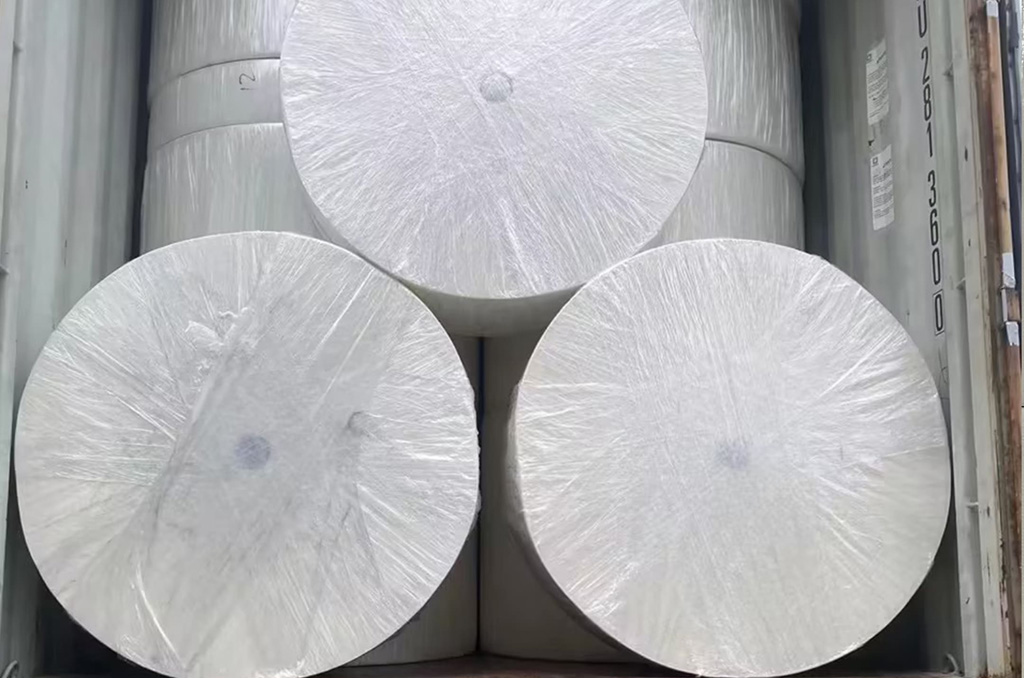
softexpaper.com



How To Load Paper Tissue Mother Rolls Into A Container For Sea Shipping?

Paper Tissue mother rolls, also known as parent rolls, are large, cylindrical rolls of paper used in various downstream applications. Given their size and
weight, improper handling during loading can result in product damage, accidents, or even loss during transit.
Dongguan Softex Paper focuses on the best practices for loading these rolls into shipping containers, emphasizing both the efficiency of space utilization
and the safety of the loading process:
1. Stacking Orientation
The orientation of the rolls during loading is a key factor in maximizing space and ensuring stability.
2. Horizontal Stacking
Single Layer Horizontal Stacking: Rolls are laid flat on the container floor, side by side, in a single layer. This method is often used for smaller rolls or when
vertical space in the container is limited.
Multi-Layer Horizontal Stacking: Similar to the single layer method, but with additional layers stacked horizontally. This approach is useful for maximizing
container space, especially with smaller diameter rolls.
3. Staggered Stacking
Alternating Vertical and Horizontal Stacking: This method alternates between vertical and horizontal layers, providing a balance between space utilization and stability. It is particularly effective for long-distance shipping where roll stability is a concern.
4. Inclined Stacking
Angled Inclined Stacking: Rolls are placed at an angle within the container. This less common method is used for specific container types or when handling non-standard roll sizes. It requires precise planning to avoid space wastage and ensure load stability.
The proper loading of paper tissue mother rolls into containers for sea shipping is a meticulous process that requires careful attention to detail. By following
the best practices outline to ensure that the rolls are transported safely and efficiently. Proper loading not only protects the product from damage but also
contributes to the overall safety and success of the shipping operation.